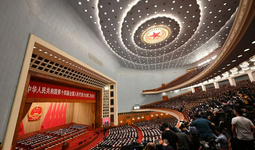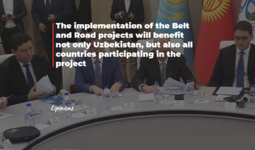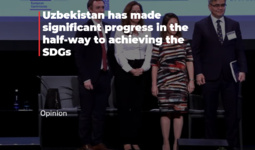British online investment publication fDi Intelligence has published an article by Uzbek Energy Minister Alisher Sultanov entitled “Cop26 plays a key role in Uzbekistan's energy reform program”.
As a major energy producer, we in Uzbekistan are about to do something remarkable. We are going to sacrifice our trade in natural gas, usually about a fifth of all our international export sales, as our contribution to the management of climate change. Make no mistake, we will do this out of our own self interest. In fact, we expect to benefit handsomely over time. And this, ultimately, is what we have discovered in just over four years of intensive planning for major economic and social reforms in our nation. This is the message we plan to take to Glasgow for Cop26 in November: what we are doing to improve the lives of our citizens is also good for the planet.
Benefits of modernisation
The worry in many emerging economies such as ours, particularly those which have been reliant on conventional energy exports, has been that we might have to curb our ambitions and limit our growth. This is not the case.
Instead, nearly everything we are doing to transform and modernise our economy will also reduce our demands on the environment.
Our natural gas exports present a useful illustration. Depending on how one calculates them, our natural gas reserves rank among the top 10 to 15 in the world and our exports have traditionally ranked in the top 20. They have been a major contributor to gross domestic product (GDP) and our trade balance.
Why would we want to give that up? Partly because we import many value-added products that we could be making ourselves from our gas — including fertilisers for our agriculture, which represents an even larger component in our GDP. And though we have gas reserves, we are not a major oil producer, so we also import petroleum products. We will soon produce our own, having invested heavily in an advanced gas-to-liquids facility.
We are also making our refineries much more efficient and environmentally friendly. This is one of many projects already under way to extract more benefit from each cubic meter of gas, while capturing greenhouse gases.
Expanding renewables
That said, we know that we need to reduce our reliance on carbon-dioxide-producing fuels. So we are investing heavily in solar and wind technologies. In this regard, my ministry is establishing a National Research Institute for Renewable Energy Sources to guide us. With the help of science, we plan to derive at least 25% of our electricity from renewable sources by 2030.
We also believe hydrogen has great potential. President Shavkat Mirziyoyev signed a decree on April 9 mandating the development of hydrogen-based infrastructure to promote greater energy efficiency and security, as well as to enable Uzbekistan’s transition to a green economy.
With the support of the European Bank for Reconstruction and Development, a low-carbon energy transition road map has been developed for the electricity sector in Uzbekistan.
Work is well under way. A few days ago, a stone-laying ceremony was held for our first wind power project in the Navoi region, being built by the UAE-based company Masdar. An agreement has been signed to expand this project to a potential 1.5GW, which would make it the largest facility of its kind in Central Asia.
Meanwhile, in the same region Masdar is also building a 100MW solar power facility, which will begin feeding into the national grid later this year. This is one of several solar power projects currently under construction or planned which, once completed, will have a capacity of about 5GW.
Setting standards
We have enacted new laws and decrees setting energy efficiency standards for industry.
Water management is a critical issue in Uzbekistan. The ravaged Aral Sea, drained by reckless mismanagement in the Soviet years, is a reminder of this need. We are introducing drip irrigation technologies in an area of up to 1 million hectares, aiming to improve crop yields by 20% to 40%, while guarding against land degradation. Elsewhere we hope to raise average productivity in agricultural food production by 20% to 25%.
We are often asked whether, at Cop26, we will be aligning ourselves with other energy producers in the world. It is true that Uzbekistan is currently one of the few countries which produces more energy than it consumes. But we do not expect this to last. Uzbekistan is growing fast: incomes are rising, and our citizens expect more from life — modern conveniences and amenities, and comfortable travel.
So we see both sides, as producers and as consumers. We believe we can help bridge differences of opinion, between the affluent and the less developed countries, and the energy exporters and the energy consumers.
Cop26 is key to this process of reconciliation and consensus. It must not be delayed again.
Alisher Sultanov,
Minister of Energy of Uzbekistan





















leave a comment